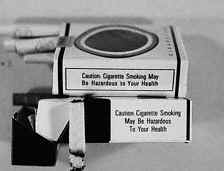|
|
DAY 4
MENTAL CONDITIONING
|
In a way, cigarettes are an extraordinary drug or .........maybe it is just the way that the huge tobacco companies have marketed the whole concept to us.
And when the adults have told us this - in a strong, convincing manner ( or so they believe ) - off they go, congratulating themselves on their parental powers -- to have a cigarette! And, of course the little kid is
puzzled and doesn't know what to believe:
A SUBCONSCIOUS BELIEF
And then so as we get older - and actually smoke our first cigarette, we are further puzzled. We get nothing at all from the experience - in fact it tastes awful - but yet the next day, we will continue on with this experiment. Why ?
Because we are
convinced
We reason: "Maybe I just haven't found it yet? And so we continue...... and of course, unknown to ourselves we become hooked - addicted. We don't realize it at first - but if we attempt to stop for any reason, we are suddenly surprised to find that it is not as easy as we had imagined. And then as we attempt to find out why this is so, we fall prone to even more of society's brainwashing ( deeply ingrained beliefs ) about smoking. We are told by everybody - even people who have NEVER smoked (how would they know!!) about how difficult it will be to stop and that you will have to suffer, if you want to give up for good. In fact, most of us have no idea of the
extent and the extraordinary power this mental conditioning has on
us.
In fact, if in giving up smoking, all we had to deal with was the chemical addiction the process would, indeed, be easy. We would only have to pick a day and stop. We would not fear any physical withdrawal symptoms because we have already discovered their true nature - merely empty, restless feelings which would soon pass. But we know that it is not like that...... .........other forces and energies arise that make us WANT to smoke. Our desire for nicotine goes to work. He knows he is too weak to keep people smoking, so he enlists the help and co-operation of a bigger force, 'our conditioning' or past beliefs - to set up a series of desires and images to make us want to smoke. The big 'Monster' is the mental conditioning we have all unconsciously accepted about smoking. Please do not regard this as somehow "unreal" or not very important. Even though the mental conditioning is only a series of thoughts held in your mind about smoking, these thoughts and beliefs are the Key factor that will determine your success in giving up smoking and actually ENJOYING the process.
|
|||||||||||||



